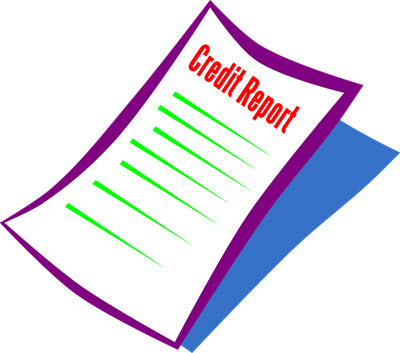Learn about how your creditworthiness will be assessed and how you can work to improve your creditworthiness.
In the United States, your credit score will be very important. In other countries, other methods are used to assess someones creditworthiness.
Request a free copy of your credit file from the main credit score companies. Look through it carefully and report any wrongs. Remember that even small and seemingly insignificant things should be reported if they are incorrect, since you never know what impact they will have in the long run.
 The three main credit bureaus are TransUnion, Equifax and Experian. Check your credit file with all three. You are entitled to see your file for free once every 12 months.
The three main credit bureaus are TransUnion, Equifax and Experian. Check your credit file with all three. You are entitled to see your file for free once every 12 months.
Some credit card companies will give you free access to your credit score, so you can check it more frequently than every 12 month without having to pay for it.
There are different mortgage loan types available and picking the right one can make huge difference for your financial situation.
Don’t blindly follow the advice if just one “expert” or “loan adviser”, because many of them have their own reasons for pushing certain loan types. Prior to the sub-prime mortgage crisis of 2008, many loan officers would push no-doc or low-doc mortgage loans simply because they were quicker and easier to process and thus made it easier for the loan officer to earn a lot of commission. Some lenders would also pay a higher commission for these loans, simply because they came with higher interest rates and fees for the borrowers.
Here area few examples of terms that you should learn what they mean before you start shopping for a mortgage loan:
| ARM loan | Non-amortizing loan |
| FRM loan | No capital – No interest Loan |
| Non-recourse mortgage loan | Investment-backed loan |
| VA loan | FHA insured loan |
| No-Doc loan | RHS insured loan |
| Low-Doc loan | RHS loan |
| NINA loan | NINJA loan |
In many cases, waiting a while and saving up a down-payment that is larger than the bare minimum will put you in a much better position to negotiate the terms of your mortgage loan.
A large down-payment can also mean that the lender doesn’t require you to get any mortgage loan insurance.
A good way to be able to afford a larger down-payment is to invest your savings until you are ready to buy a house. Always invest your money in low risk assets. It can be tempting to try to trade digital 100 options or other high risk instruments to try to earn a lot of money quickly. This is never a good idea. Play it safe with your house money.
The nominal interest rate is of course very important when negotiating mortgage loan conditions, but that doesn’t mean that you should neglect the fees. Learn about the various fees involved, ask questions about them and involve them in the negotiations. Sometimes a loan offers that can’t or won’t budge more on the nominal interest will still have some flexibility when it comes to removing or decreasing certain fees.
Examples of fees that you need to learn about:
Contact several potential lenders and see what they have to offer. Check out banks, credit unions, specialized mortgage loan companies, federal agencies, state level agencies, community-focused organizations, and whatever else is available where you live.
In some countries, a lender requesting to see your credit file will be noted in the file, and having a lot of requests can look bad – as if you are constantly trying to take on more credit. It is therefore best to contact all the potential lenders at the same time. This way, if all of them obtain your credit file, anyone assessing your credit later on will understand that you were shopping around to find the best lender. In the United States, the FICO Score will disregards multiple requests from lenders if they happen within a 45 day period.
Even if you get a few really good offers, it doesn’t hurt to negotiate. You getting fine offers means that you are an attractive client that several lenders are interested in.
This article was last updated on: February 27, 2018